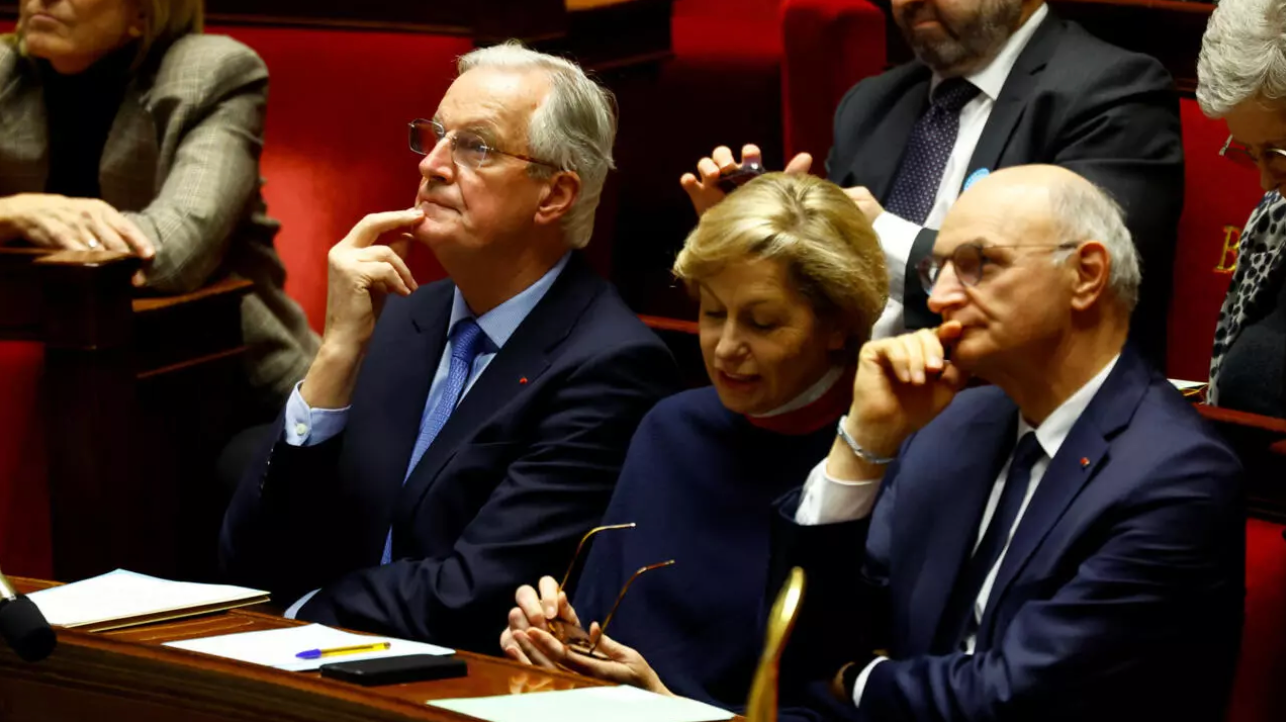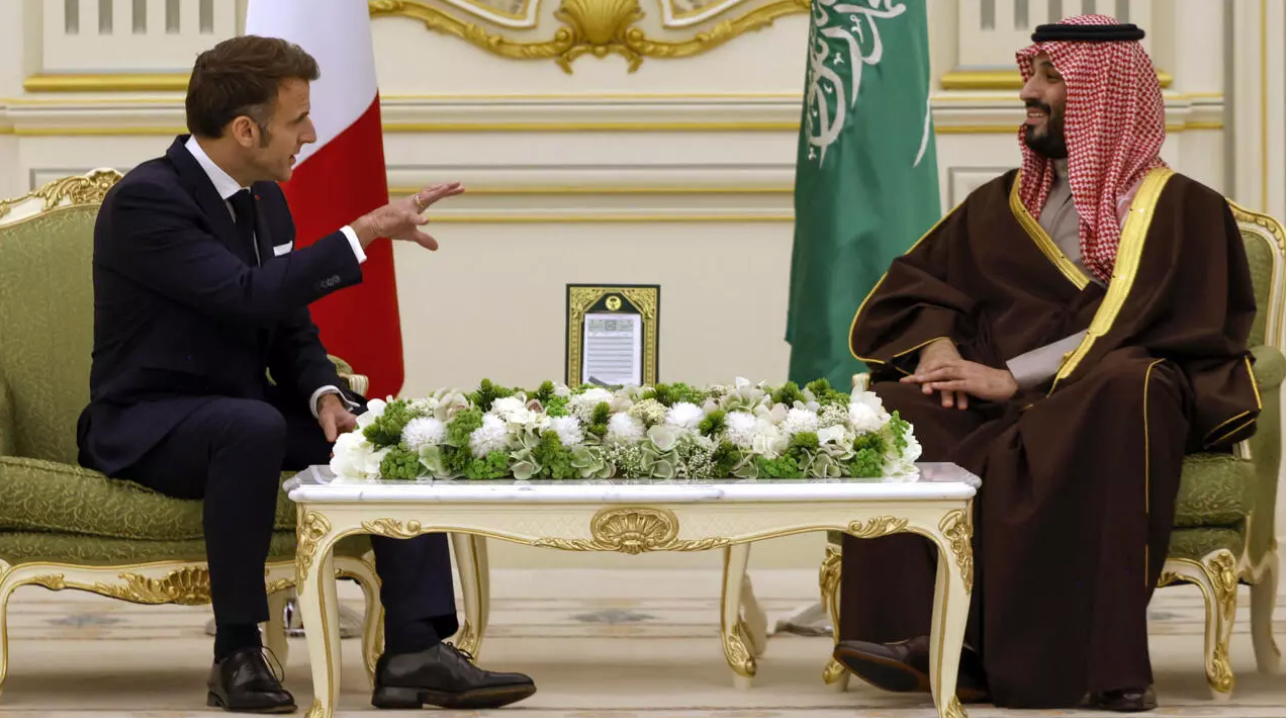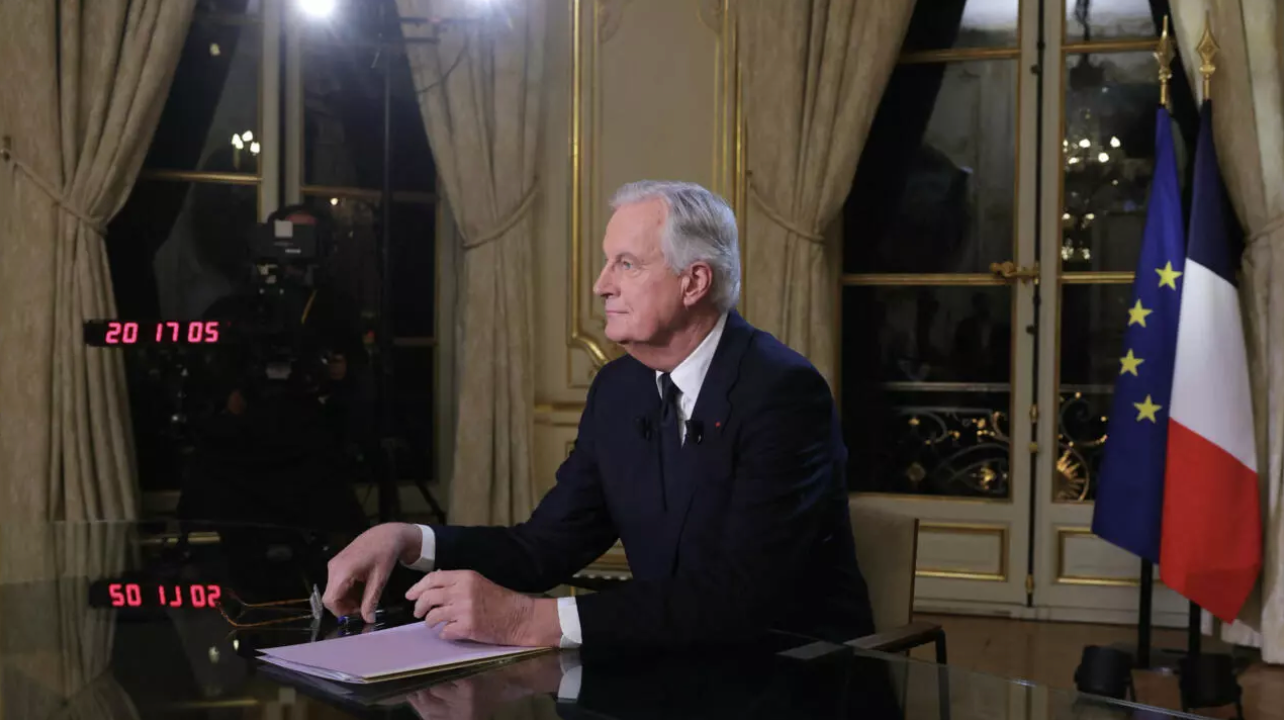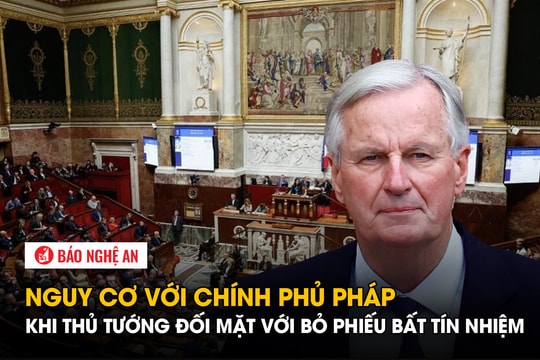French politics further deadlocked after government toppled in no-confidence vote
The French National Assembly voted to oust the government in a no-confidence vote on December 4. The ousting of Prime Minister Michel Barnier came after a coalition of left-wing and far-right parties pledged to oust him for forcing an unpopular budget bill through parliament without a vote. The Élysée Palace said President Emmanuel Macron would address the nation on the evening of December 5 (local time).
331/557 votes of no confidence

French lawmakers voted on December 4 to oust Prime Minister Michel Barnier's government after just three months in power, a historic move that plunges the country into deeper political turmoil.
For the first time in more than six decades, the French National Assembly has ousted an incumbent government, passing a motion of no confidence proposed by the far-left and supported by the far-right led by Marine Le Pen.
Mr Barnier's removal follows extraordinary parliamentary elections this summer, which resulted in a hung parliament with no party holding a majority, and the far-right was key to the government's survival.
President Emmanuel Macron now faces a difficult choice in finding a possible successor, with more than two years left in his presidential term.
The French National Assembly debated a motion put forward by the far-left in a standoff over next year’s austerity budget, after the Prime Minister forced a social security funding bill through without a vote on December 2. With the support of the far-right, 331 lawmakers, or a majority of the 577 members of the National Assembly, voted to oust the government.
Parliamentary President Yael Braun-Pivet confirmed that Mr Barnier would now have to "submit his resignation" to President Macron and declared the session closed.
President Macron returned to Paris shortly before the vote after a three-day state visit to Saudi Arabia. Early on December 4, he walked through the desert at Al-Ula oasis, a symbolic tourist project of the oil kingdom, admiring ancient ruins. After landing, he immediately returned to the Élysée Palace.
On December 3, Mr. Macron accused Le Pen's far-right faction of "unacceptable opportunism" in supporting this no-confidence motion.
No new elections can be held for a year after last summer's vote, further narrowing Mr Macron's options.
Laurent Wauquiez, leader of the right-wing parliamentary group, said the far right and far left were responsible for the no-confidence vote, which would "plunge the country into instability".
“His failure"

Some have suggested Mr Macron should resign to break the deadlock, but he dismissed such calls, calling such a scenario “political fiction”. “It is really inappropriate to say such things,” Mr Macron said during a trip to Saudi Arabia.
Eric Coquerel, a left-wing MP, said the no-confidence motion against Mr Barnier was "the death knell for Emmanuel Macron's presidency".
With markets on edge and France bracing for public sector strikes over the threat of job cuts that could lead to school closures and disruption to air and rail traffic, the sense of crisis is growing.
Unions have called on civil servants, including teachers and air traffic controllers, to strike on December 5 to protest against cost-cutting measures proposed by relevant ministries this autumn.
Meanwhile, Mr. Macron is scheduled to host a major international event on December 7 to celebrate the inauguration of Notre Dame Cathedral after the 2019 fire, with the participation of Mr. Donald Trump on his first foreign trip since being elected as the next US President.
The front page of Libération, a left-wing daily, featured a picture of Mr Macron – whose term runs until 2027 – with the headline “His failure”.
Warbroken comb

However, in an editorial, Le Monde newspaper said that Ms. Le Pen's move risks offending her own voters, such as pensioners and businessmen, by bringing down the government.
"In just a few minutes, she broke the normalization strategy she had always pursued," the newspaper commented.
Some observers believe Ms Le Pen, 56, is trying to topple Mr Macron before his term ends by ousting Mr Barnier.
Ms Le Pen is currently embroiled in a high-profile corruption trial. If convicted in March, she could be barred from running in France’s next presidential election.
But if Mr Macron resigns early, an election would have to be held within a month, which could take place before a verdict is handed down.
The field of candidates for the new prime minister is currently small, with loyal Defense Minister Sebastien Lecornu and Mr Macron's centrist ally Francois Bayrou among the possible names.
On the left, Mr. Macron could choose former Socialist prime minister and interior minister Bernard Cazeneuve, a strong candidate in September. Multiple sources told AFP that Mr. Macron plans to quickly appoint a new prime minister.
It was the first successful vote of no confidence since the government of Georges Pompidou was defeated in 1962, when Charles de Gaulle was President.
The Barnier government's tenure is also the shortest of any government since the start of the Fifth Republic in 1958.





